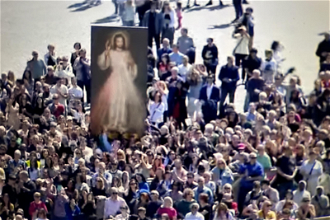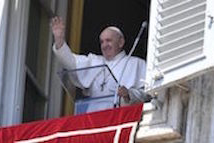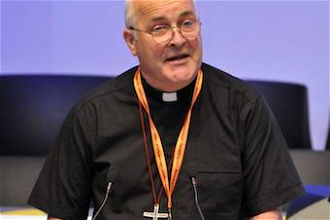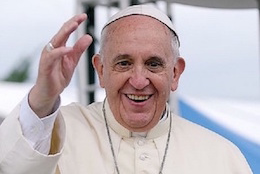CoE to mark Darwin bicentenary
The Church of England has developed a new section of its website to mark the approaching bicentenary of Charles Darwin's birth in 1809, and the 150th anniversary of the publication of 'On the Origin of Species' in 1859.
As media interest grows in the bicentenary, the pages analyse Darwin's faith and his relationship with the Church of England. A new essay by the Revd Dr Malcolm Brown, Director of Mission and Public Affairs, gives a personal view of Darwin's contribution to science, whilst warning of social misapplications of his theories.
The Bishop of Swindon, Rt Revd Lee Rayfield, himself a former biological scientist, has contributed a welcome page to the section, and commented: "Theology and science each have much to contribute in the assertion of the Psalmist that we are 'fearfully and wonderfully made'. I hope that this new section will not only provide a source of information and knowledge about Charles Darwin and his work, but that it will prove to be a resource for growing in wisdom and understanding."
In the new section, Darwin and the Church reveals that Darwin was surrounded by the influence of the Church his entire life. Having attended a Church of England boarding school in Shrewsbury, he trained to be a clergyman in Cambridge; was inspired to follow his calling into science by another clergyman who lived and breathed botany; and married into a staunch Anglican family.
However, Darwin and Faith shows, quoting Darwin's own words, how he slowly lost his personal Christian faith, the erosion made complete by a need for evidence, and the sad death of a beloved daughter.
It is this need for humans to think, and love, that forms the centrepiece of the essay by the Revd Dr Malcolm Brown, called 'Good Religion Needs Good Science'.
After warning of the social misapplication of Darwin's discoveries, where natural selection justifies racism and other forms of discrimination - perhaps predicted in the "misguided" over-reaction of the Church in the 1860s - Malcolm Brown writes: "Christians will want to stress, instead, the human capacity for love, for altruism, and for self-sacrifice."
He separates biological science and human emotions further by pointing out the naivety of assuming a wholesale evolution of the human race: "Despite our vastly expanding technical knowledge, even a fairly cursory review of human history undermines any idea of constant moral progress."
To give this essay an accurate historical backdrop, Brief History of Darwin lists bullet-points that bring to life Darwin's rise to prominence and vast scientific advancements.
This is complemented by Further Reading, which points to Darwin's major written works; their location online; and a listing of how various bodies are celebrating Darwin's bicentenary over the coming months on the Events page.
The material concludes that a healthy balance between the mystery of faith and the wonders of scientific discovery is essential - as the Revd Dr Malcolm Brown writes: "There is no reason to doubt that Christ still draws people towards truth through the work of scientists as well as others, and many scientists are motivated in their work by a perception of the deep beauty of the created world."
Source: CoE Comms





















